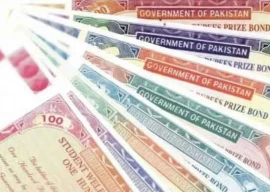
In a notification sent to the Karachi Stock Exchange on Monday, the company said “decline in government development expenditures due to budgetary constraints, recessionary conditions prevailing in the domestic market, imposition of high federal and provincial taxes on cement, very low selling prices, cut-throat domestic competition, high export expenses, exorbitant fuel costs, rise in electricity charges and under-utilisation of installed capacity” have caused liquidity problems for Maple Leaf.
Due to these reasons, the company said, it was unable to repay long-term debts and has rescheduled payments in agreement with lenders.
In its communication to the exchange, Maple Leaf Cement CEO Tariq Saigol said “the company was unable to repay its long-term debts availed from Allied Bank and other local financial institutions.”
He stated that due to the weaker financial position of the firm, the “directors did not consider it feasible to pay dividend.”
He said an agreement was reached with the lenders to restructure repayment of outstanding loans, which allowed Maple Leaf to inject fresh funds into the company to improve cash flow.
Subsequently, the firm received permission from the Securities and Exchange Commission of Pakistan to issue 153.846 million shares on June 30.
The company said the agreement also restricted it from making payouts to shareholders, adding “no dividend payouts can be made without prior approval of Sukuk lenders till the long-term debts are repaid.”
The Maple Leaf Cement CEO also said any “long-term improvement can be achieved only by increased capacity utilisation that mainly depends on the revival of economic activity and development projects in the country.”
Published in The Express Tribune, July 6th, 2010.


1732538123-0/BeFunky-collage-(90)1732538123-0-165x106.webp)

1732536148-0/ariana-(1)1732536148-0-165x106.webp)



1732486769-0/image-(8)1732486769-0-270x192.webp)








COMMENTS
Comments are moderated and generally will be posted if they are on-topic and not abusive.
For more information, please see our Comments FAQ